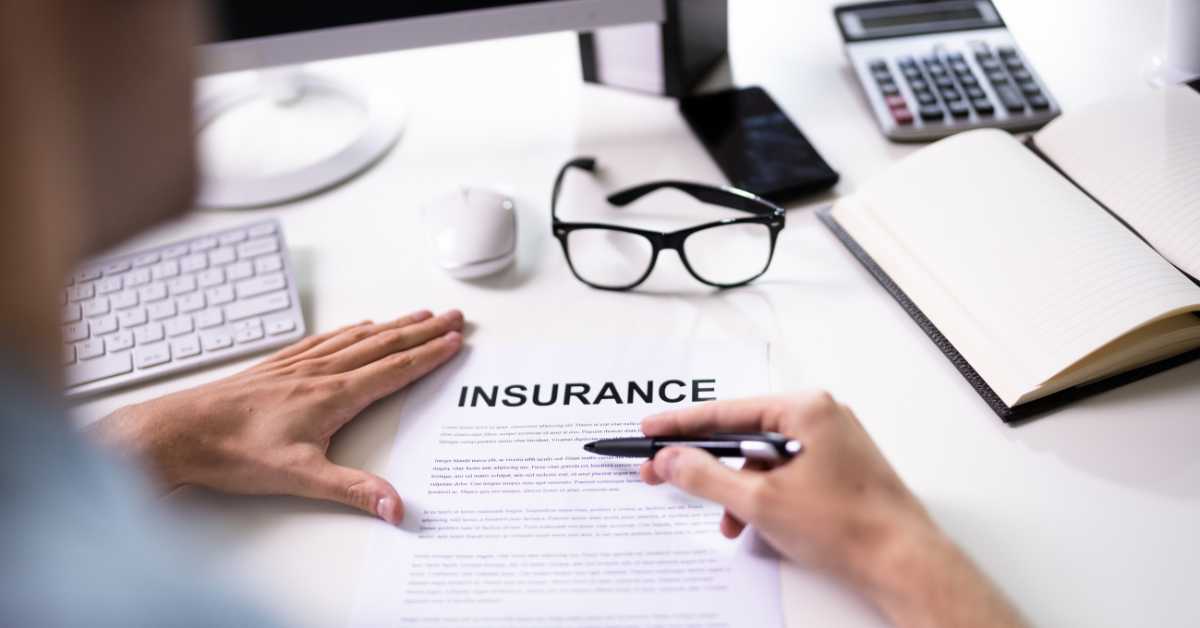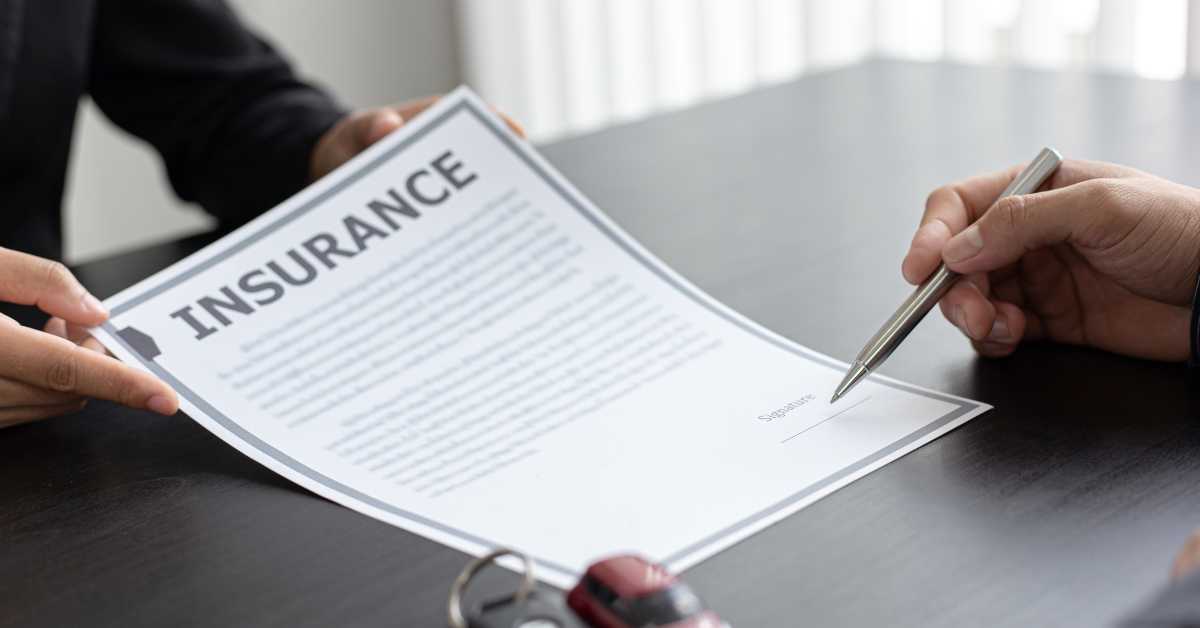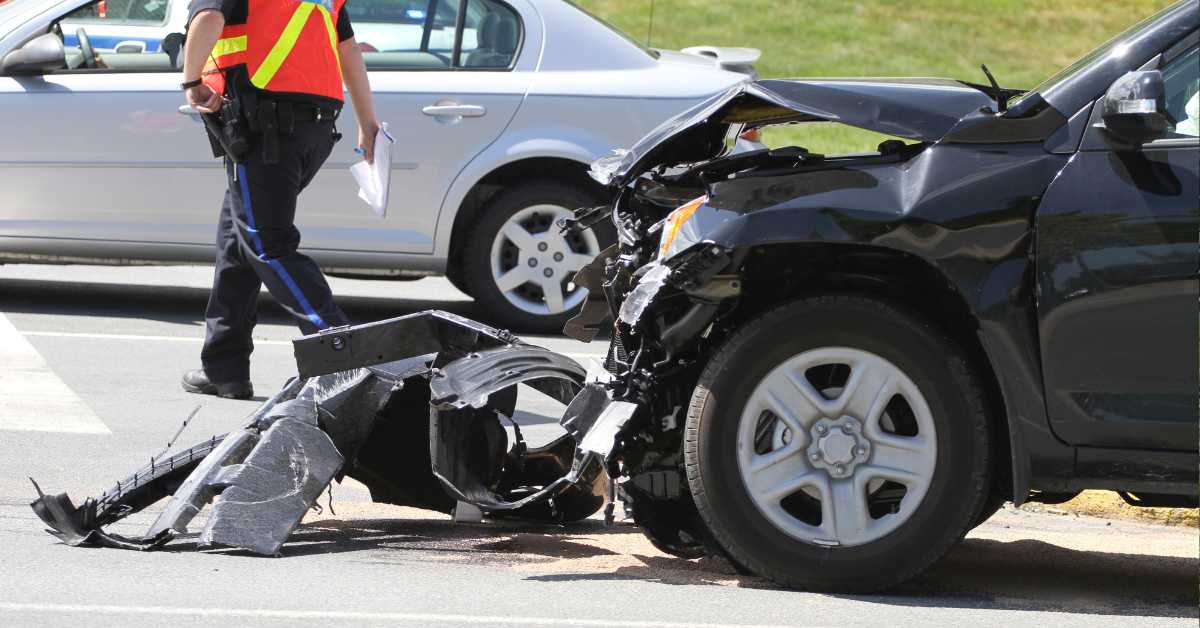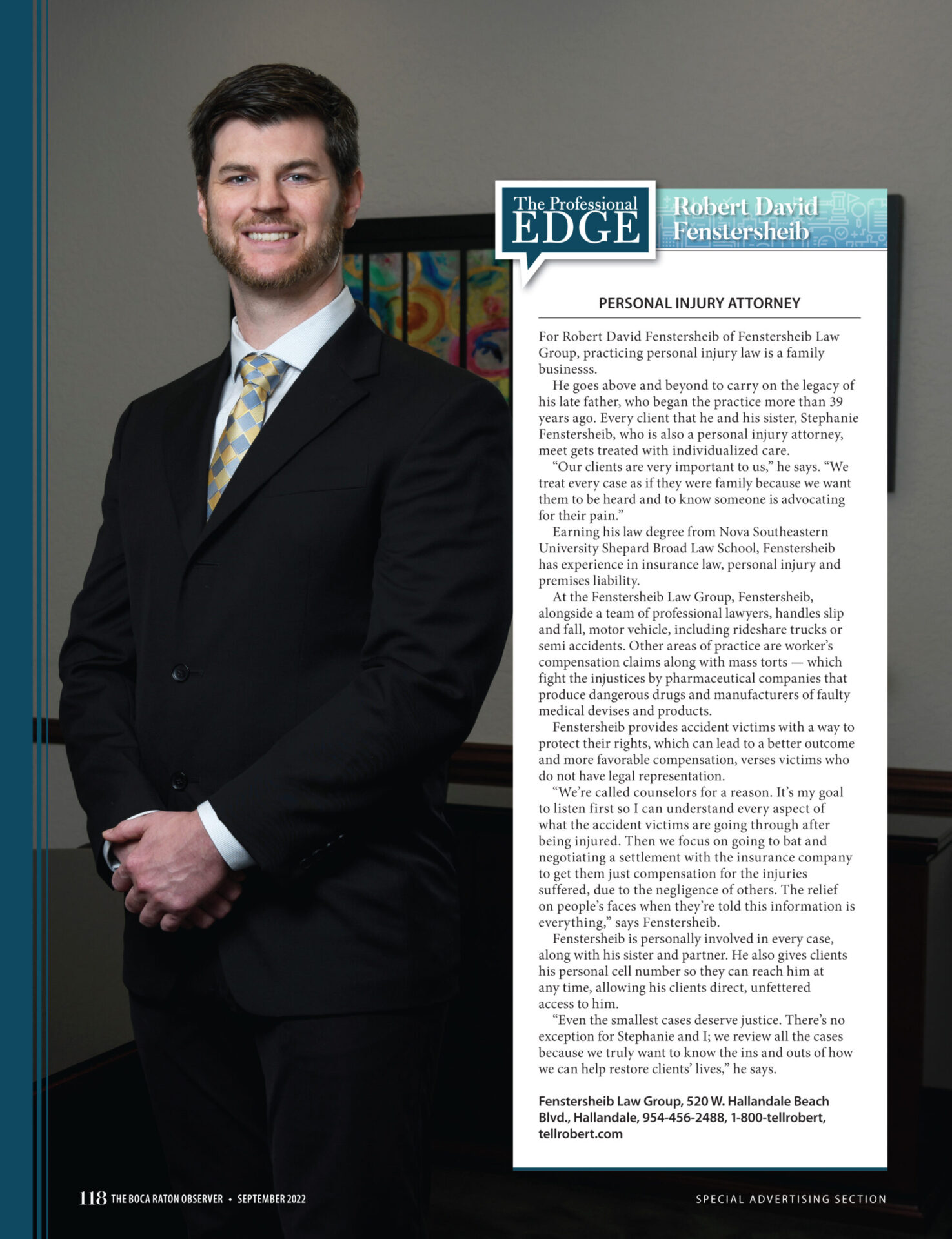https://youtu.be/LaPnrdJWs6M In the attached video, Stephanie Fenstersheib of Fenstersheib Law Group explains what to do if the at-fault driver lies about how your car accident happened — a frustrating situation that unfortunately happens more often than you’d think. When someone twists the facts or gives false information to the police or their insurance company, your best defense is evidence and consistency. As Stephanie shares in the video, one of the most powerful tools you have after an accident is photos. A picture truly is worth a thousand words. In fact, she describes a case where a dishonest driver claimed the other motorist swerved into his lane — but photos from the scene proved otherwise. Because the victim took clear pictures showing the real damage and vehicle positions, the team at Fenstersheib Law Group was able to successfully challenge the insurance company’s denial and fight for fair compensation. In addition to documenting everything, make sure you speak directly with law enforcement at the scene. Police reports often include both drivers’ accounts, and any inconsistencies are noted. Staying calm, telling the truth, and keeping your story consistent…Read More
In the attached video, attorney David Fenstersheib of Fenstersheib Law Group breaks down the most common — and most confusing — auto insurance terms that every Florida driver should understand. If you’ve ever looked at your policy and wondered what “PIP,” “BI,” or “UM” really mean, this quick video will clear things up and help you make sense of your coverage. Florida’s no-fault insurance system can be tricky, but knowing how each type of coverage works is key to protecting yourself financially after a crash. As David explains, PIP (Personal Injury Protection) covers 80% of your initial medical bills up to $10,000 — regardless of who caused the accident. BI (Bodily Injury Liability) covers injuries you cause to others, while UM/UIM (Uninsured or Underinsured Motorist) coverage protects you when the other driver doesn’t have enough insurance. You’ll also hear about PD (Property Damage) coverage, which pays for damage you cause to another vehicle or property, and Comprehensive and Collision coverage, which protects your own car from crashes, theft, or natural disasters. And if you lease or finance your vehicle, Gap Insurance can be a lifesaver…Read More

Understanding How Insurance Companies Evaluate Settlements After a car accident or personal injury, the settlement amount offered by an insurance company can make a huge difference in your recovery process. Many Florida residents are surprised by how complex that process is and how many factors play into what an insurance adjuster ultimately decides to offer. These decisions aren’t random—they’re based on specific rules, policy terms, and Florida law. Insurance companies are businesses. Their goal is to close claims efficiently and pay as little as possible while staying within the bounds of the law. Knowing how they arrive at a settlement figure helps you protect your rights and avoid accepting less than you deserve. Liability and Fault The first step in any settlement calculation is determining who was at fault for the accident. In Florida, the concept of comparative negligence plays a big role. Under Florida Statute §768.81, an injured person can still recover damages even if they share some blame for the accident, but their compensation is reduced by their percentage of fault. For example, if you were found 20% at fault in a car…Read More

Can Road Hazards Make the City Liable in Tamarac? Road hazards are a common issue for drivers in Tamarac, Florida, and they can lead to serious accidents. If you’ve encountered a dangerous pothole, a missing guardrail, or any other road hazard that has caused you injury or damage, you may be wondering if the city can be held liable. Understanding your rights and the steps you should take can be crucial in navigating these situations. This article will guide you through the process of determining liability for road hazards in Tamarac and how to pursue a claim if necessary. Understanding Liability for Road Hazards In Florida, government entities can be held liable for road hazards under certain circumstances. However, there are specific criteria that must be met: Negligence: The city must have been negligent in maintaining the roads. Notice: The city must have had actual or constructive notice of the hazard. Causation: The hazard must have caused your injury or property damage. Examples of Road Hazards Some common examples of road hazards that could lead to city liability include: Potholes that are not repaired in…Read More

Who’s Liable for a Parking Lot Crash in Lake Worth Beach? Parking lot accidents are more common than many people realize, especially in bustling areas like Lake Worth Beach. With a mix of pedestrians, vehicles, and tight spaces, the potential for accidents is high. But when a parking lot crash occurs, who is responsible? Understanding liability in these situations can be complex, but it’s crucial for protecting your rights and pursuing any compensation you may deserve. Let’s break it down. Understanding Liability in Parking Lot Accidents Liability in a parking lot accident can depend on several factors. Here are some key aspects to consider: Negligence: If a driver was acting recklessly—speeding, texting, or driving under the influence—they may be found negligent. Faulty Design: Poorly designed parking lots can contribute to accidents. If the design fails to provide adequate signage or visibility, the property owner might be liable. Maintenance Issues: Potholes, broken lights, or other hazards can lead to accidents. If the property owner neglected these issues, they could share liability. Pedestrian Behavior: Pedestrians must also exercise caution. If a pedestrian darts out without looking, they…Read More

Florida drivers often feel stuck after a denied insurance claim following a car wreck, especially when medical bills and car repairs continue to accumulate. However, a denial is not the end of the road. Florida law gives you several ways to challenge an insurer’s decision and push for a fair outcome. Florida follows a no-fault system for personal injury protection (PIP). However, denials still occur due to late notice, missing documents, policy exclusions, or disputes over whether the crash caused the injury. Clear records, timely responses, and a structured appeal can change the result. An attorney with Fenstersheib Law Group, P.A. can help you appeal the insurer’s decision and work to obtain every dollar you deserve. Why Florida Insurers Deny Auto Claims Insurers commonly cite late reporting, gaps in treatment, alleged pre-existing conditions, or policy exclusions as reasons for denying coverage. PIP rules require prompt treatment and proper coding, and adjusters will scrutinize imaging and therapy notes for consistency. A concise paper trail makes it harder to dismiss valid losses. Florida law also regulates claim handling. Unfair claim settlement practices are prohibited, and carriers must…Read More

After a car accident, many people want to settle their case as quickly as possible to put the process behind them and move on. The most effective way to resolve these cases efficiently is to collaborate with an attorney who specializes in this area, ensuring that the compensation value remains high. It is also important to understand that some factors delaying settlement proceedings are in the victim’s favor, and a faster resolution may not be a good thing. Why the Fastest Insurance Settlement May Not Be Ideal While many are eager to close an accident case as soon as possible to avoid the headaches of a drawn-out process, it is crucial to be strategic about personal injury settlements to avoid lowball offers and secure fair compensation. No lawyer can determine the value of a personal injury case immediately. The exploration and review process uncovers evidence over weeks or months, and while this can be frustrating, it often leads to higher compensation. For instance, if medical records can prove that one’s injuries are permanent or cause long-term disability, the damages will be higher. Accident victims should…Read More

After a car accident, many people want to settle their case as quickly as possible to put the process behind them and move on. The most effective way to resolve these cases efficiently is to collaborate with an attorney who specializes in this area, ensuring that the compensation value remains high. It is also important to understand that some factors delaying settlement proceedings are in the victim’s favor, and a faster resolution may not be a good thing. Why the Fastest Insurance Settlement May Not Be Ideal While many are eager to close an accident case as soon as possible to avoid the headaches of a drawn-out process, it is crucial to be strategic about personal injury settlements to avoid lowball offers and secure fair compensation. No lawyer can determine the value of a personal injury case immediately. The exploration and review process uncovers evidence over weeks or months, and while this can be frustrating, it often leads to higher compensation. For instance, if medical records can prove that one’s injuries are permanent or cause long-term disability, the damages will be higher. Accident victims should…Read More

Assuming partial blame for a car accident is relatively common in Florida. Often, car crashes aren’t only one person’s fault. They involve several overlapping circumstances, and multiple parties assume some of the blame. Navigating partial fault in a car accident might feel confusing. Can you still seek compensation or file a lawsuit if you were partially to blame? The answer depends primarily on your percentage of fault. What If Multiple Parties Are Partially At Fault in a Florida Accident? Under Florida law, insurance companies can assign partial blame to multiple parties in an accident. Florida follows a "pure comparative negligence" policy for accidents. As long as a person is no more than 50% responsible for an accident, they can still seek compensation from the other driver or parties involved. If they are more than 50% responsible, they will be barred from seeking compensation. A person’s fault percentage also impacts the amount of compensation they can receive. If you were 20% responsible for an accident, for example, you would only be able to seek 80% of your damages. Other states follow other policies for assigning partial…Read More

If the at-fault driver in your car accident passed away, you may feel strange filing an insurance claim against them. Do you have the right to seek car accident compensation from the deceased? Or should you just leave their family alone? Seeking compensation isn’t personal; it’s your right as an accident victim. You may still be able to file an insurance claim or even a lawsuit against the at-fault driver and recover compensation. Often, you will not have to deal with the deceased driver’s family directly during this process. Filing an Insurance Claim Against the Deceased At-Fault Driver If your car accident happened in Florida, the state’s no-fault insurance rules will apply to your case. Florida drivers are responsible for carrying personal injury protection (PIP) insurance. They typically file insurance claims with their own companies after an accident, regardless of who was at fault. You would need to first file a claim with your insurance company for medical bill coverage, car repair compensation, and lost wages reimbursement. There is one main instance where you would need to file with the at-fault driver’s insurance instead: Your…Read More


